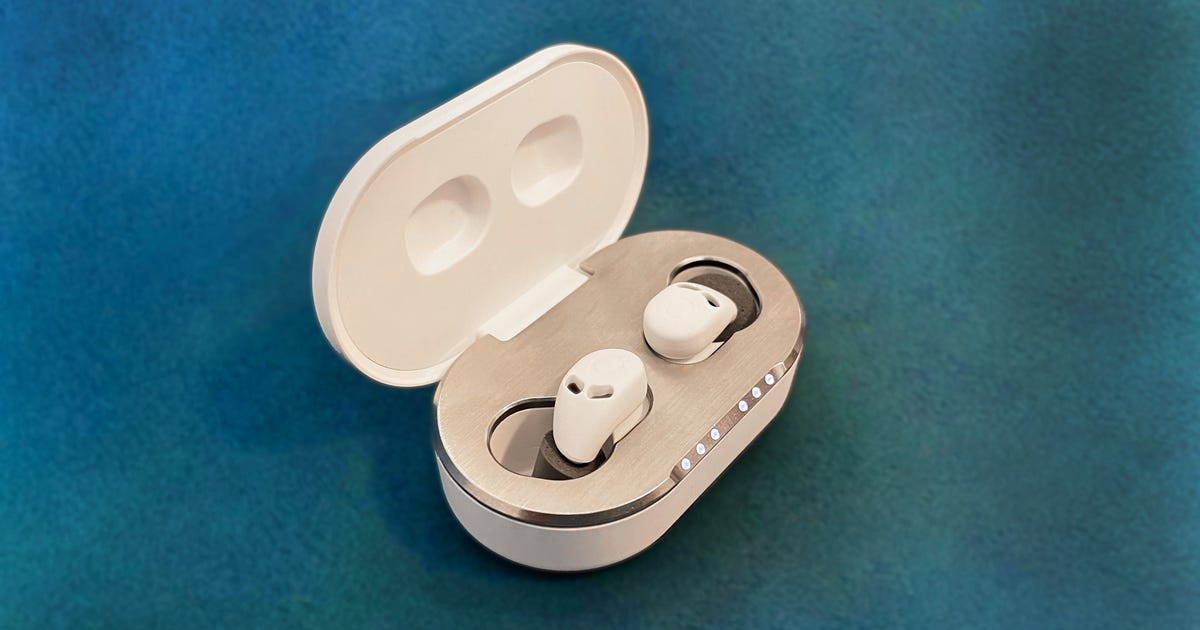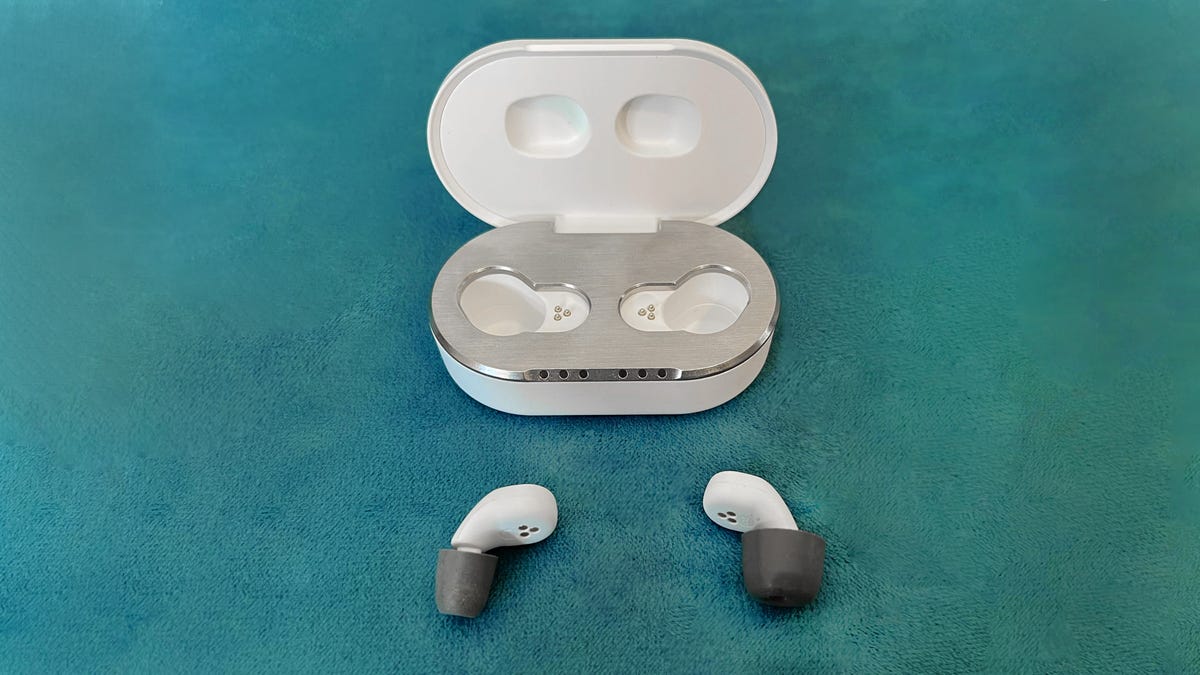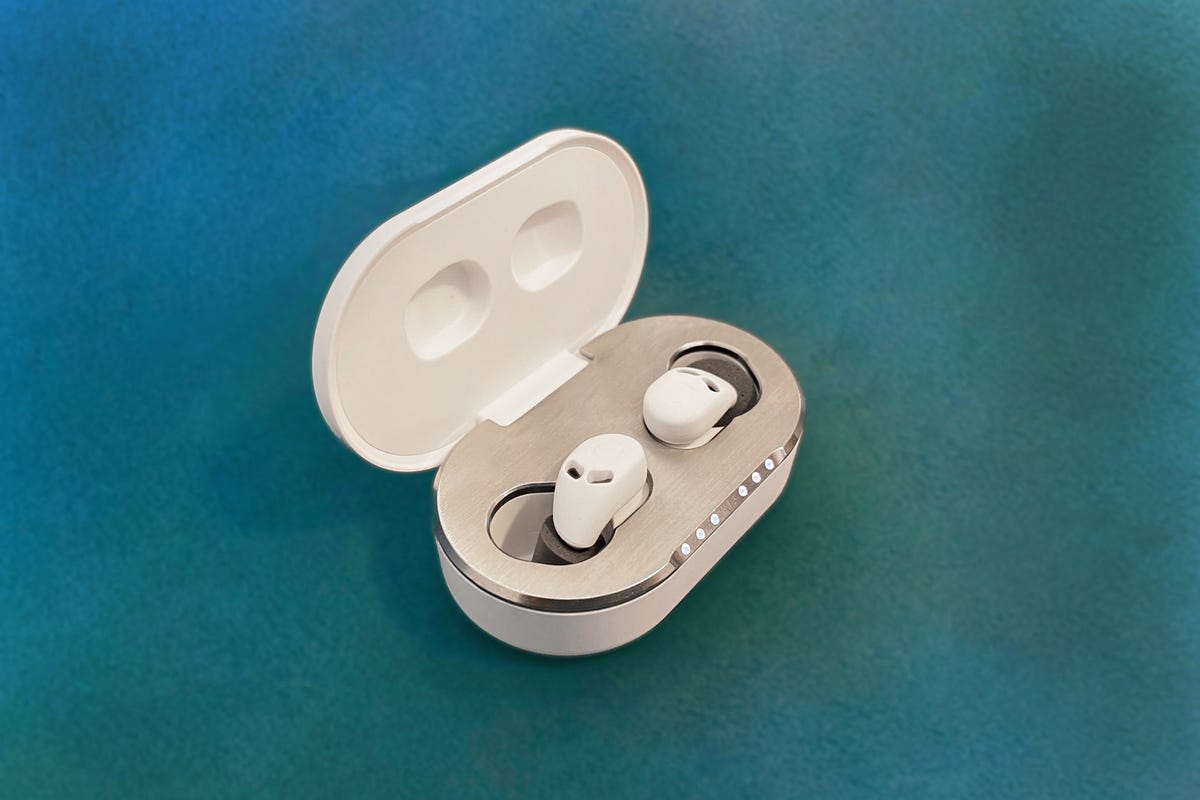
The QuietOn 3 sleep earbuds initially look a lot like AirPods or other wireless earbuds: They’re tiny, white and fit neatly into a pocket-size magnetic case. But the QuietOn 3s don’t play music. In fact, they do the opposite. These $269 noise-canceling earbuds are designed to muffle the sounds in your environment almost to the point of silence. Think Bose Sleepbuds II but instead of playing white noise, they eliminate it.
I was eager to try these earbuds as I live in a really noisy part of New York. There’s an above-ground subway station and a busy intersection in front of my bedroom window. I didn’t expect the QuietOn earbuds to knock out every sound — even the most expensive noise-canceling headphones like Apple’s AirPods Max can’t do that. But I was curious to see how much of all that noise they could drown out. I found that while it takes a bit more work for me to get these earbuds to fit, they can block out a lot of idle sounds.
Finding a fit was tricky
Getting a tight seal is critical for any earbud that has active noise cancellation. But in my experience, it took several nights of trial and error to figure out the best fit to make these work. While the QuietOn includes several foam eartips in different sizes, I struggled to find the sweet spot between an effective fit and something comfortable enough that I could tolerate wearing them for an entire night.
Some nights I found myself taking the earbuds out at 3 a.m. as I just couldn’t stand having them squeezed inside my ear canal nor feeling them while lying on my side. Other nights I picked ear tips that became too loose and fell out overnight. I have similar issues when I try to sleep with rubber earplugs, which also usually fall out of my ears at some point in the night.
QuietOn does provide instructions and a video for finding that fit, which may involve mixing and matching the different sizes to find something both snug yet comfortable. I needed to use the larger tip size for one ear and a smaller size in the other, which is common for most wireless earbuds with interchangeable tips.

The QuietOn 3 sleep earbuds come with a variety of foam tips and fit into a charging case.
Mike Sorrentino/CNET
So quiet, maybe too quiet
Once I got the earbuds to fit and went to bed, I was fascinated that noises I didn’t even realize I had adjusted to were suddenly gone. Sounds like the wind whipping down the street, the air ventilation in my room and seemingly most car sounds had become unnoticeable — which for the first few nights left me feeling uneasy, as if there was something wrong. On the nights when I did choose to pull the QuietOn earbuds out of my ears, those sounds became instantly noticeable, and were now making it difficult for me to fall back to sleep.
The QuietOn buds made a dent in the train sound from the subway line in front of my window, even though they couldn’t mask it entirely. This was especially good for an express train that goes by at full speed, which the earbuds brought down to more of a hum. I still noticed it, but the sound wasn’t anywhere near as loud. Other occasional noises like an audio alarm in the morning were still noticeable, though not as loud.
When you’re done sleeping, the QuietOn earbuds go into a charging case that the company claims will keep the earbuds charged up for about 28 hours before needing a boost through its USB-C port. I found that claim to be fairly accurate, as I would charge it after four nights of rest.

The QuietOn 3 charging case has LEDs on the front to denote the battery charge. As long as each earbud has one light on while in the case, it can last the night.
Mike Sorrentino/CNET
Sensitive sleepers should take note of the trial period
Sleep can be a very subjective experience. While I found the wireless earbuds to be quite effective, I’m one of those people who’s not fond of putting anything into my ears when I wind down. Meanwhile, I know of several other people who love to sleep with headphones on. Perhaps the QuietOn earbuds are best for those in the middle — people who are OK with wearing earplugs or earbuds to bed, but don’t want to have a music playlist or white noise blasting into their ears all night long. Earbuds like these could be especially helpful for anyone looking to block out a partner who snores or to airplane sounds when trying to sleep on a flight.
The QuietOn 3 sleep earbuds are also just plain expensive, costing more than many high-end noise-canceling earbuds that also play music and connect to your phone for calls, like Apple’s $249 AirPods Pro and Sony’s $280 WF-1000XM4. If you’re interested in the QuietOn earbuds, try out regular earplugs or our other sleep tips first before considering the investment. While we haven’t tested them, there are also other sleep earbud products from Amazfit for $150 and 1More for $100, but these also take more of a sound masking approach with white noise as opposed to active noise cancellation. QuietOn does offer a 14-day trial period, which should give you enough nights of trial and error to find out if these earbuds are the right answer for you.
